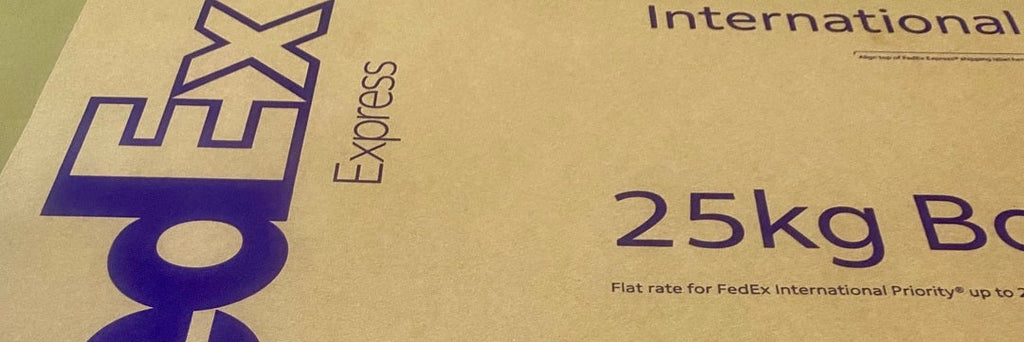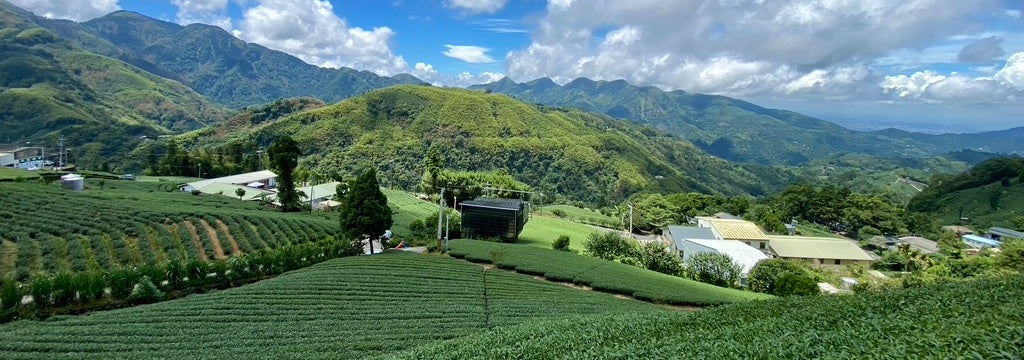News

Christmas vs. Lunar New Year: Through the Lens of Taiwan Tea
Discover how Christmas in Western countries contrasts with Lunar New Year in Taiwan, from seasonal atmosphere to food traditions and family gatherings. Learn why Taiwan tea, especially Oolong tea, plays a meaningful role in New Year celebrations and how it reflects hospitality and cultural heritage. This post guides you through the distinct rhythms, symbols, and practices that shape each holiday and reveal deeper aspects of Taiwan culture.

Nantou Global Tea Expo 2025
Taiwan's biggest tea event by far is happening this week in Nantou County. We've been participating and attending the Nantou Global Tea Expo every year since its inception in 2010. Our tea mentor Tony Lin was the producer of this event for the first 10 years, until he retired from the Lugu Farmers Association five years ago, but not much has changed, and it continues to grow in popularity.

Shipping To The US Has Resumed!
We can ship to the US again! As of now, we ship to the US in bulk by FedEx, then fulfill your orders within the US, and ship to each customer domestically. (Shipping to the rest of the world remains the same as it always has been.)
Your shipping cost is now calculated automatically, based on the weight of your order. You can see the shipping fee when you checkout. This is the ONLY shipping fee you pay. We cover any tariffs or processing fees that may occur. So you don't have to be concerned about any added fees after you make your purchase.

Taiwan's Biggest Tea Festival 2025
Taiwan's Nantou Global Tea Expo is an annual event that happens around Taiwan's National Day on 10/10. The event has varied in length over the last 14 years, but typically spans over 9 days — from Saturday through the following Sunday. It's a massive occasion, with hundreds of vendors, and several hundred thousand visitors! There are dozens of activities to attend and partake in, along with endless cups of tea being served!

Normal Shipping Method to U.S. Suspended, In Search Of Options...
We just want to keep our people in the loop, and briefly explain our current situation with shipments to the US from Taiwan. Our normal carrier Taiwan Post has suspended shipments to the US due to the tariff related restrictions that were initiated in the US on August 29. So, we are exploring our options and plan to have an alternative carrier up and running, with all the tariff clearance boxes checked, so we can keep you in tea!

Shan Lin Xi High Mountain Oolong Tea Spring vs. Summer Harvests
Comparing our 2025 Shan Lin Xi High Mountain Oolong Tea Batches at Eco-Cha, we’re thrilled to share our latest tasting adventure from the heart of Taiwan’s tea country!

Taiwan High Mountain Oolong Tea Winter 2024
So, you may be wondering — how exactly do these three winter 2024 batches of Taiwan High Mountain Oolong compare?! Well in short, they are distinctly different in their aromatic and flavor profiles. This is primarily due to their regional variations, which you can learn more about on each product page. Then there are the differences in the timing and weather on the day of harvest. And finally, the slight but significant differences in how they were processed.

Top 5 Best-Selling Teas in 2024 | Eco-Cha Teas

Taiwan's Nantou Global Tea Expo 2024

Bonsai Exhibit At Historical Mazu Temple

Mid-Autumn Festival Gathering: Our Favorite Holiday Custom
Mid-Autumn Festival is the second biggest cultural holiday of the year in Taiwan. This year was a bit of a subdued occasion, as it fell on a Tuesday, and Monday was a work day. So the festivities were much less apparent this year. We missed seeing the ubiquitous family barbecues popping up in front yards everywhere. So we called our dear friends on Monday and asked if they were up for a visit and a barbecue on Tuesday. They said "Of course!".


